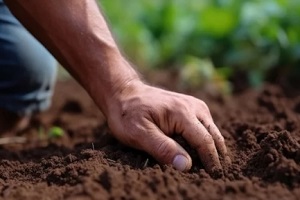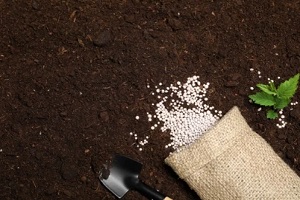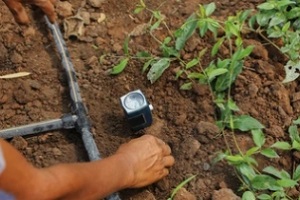 As any experienced gardener knows, loam soil is much more than the earth beneath our feet. This rich, dynamic substance forms a complex ecosystem, brimming with life and sustaining our gardens.
As any experienced gardener knows, loam soil is much more than the earth beneath our feet. This rich, dynamic substance forms a complex ecosystem, brimming with life and sustaining our gardens.
Loam soil, a perfectly balanced blend of sand, silt, and clay, is often considered the gold standard in horticulture due to its structural excellence, efficient drainage capabilities, and nutrient-dense constitution. But maintaining and managing its quality can present challenges even for seasoned gardeners.
Know Your Loam Soil Inside Out
Before embarking on any soil management strategy, you must first understand the current state of your soil. Regular soil testing, ideally annually or even bi-annually, can help you gauge nutrient content, pH level, and overall soil composition.
Knowledge is power in the realm of gardening, and understanding these elements will allow you to adapt and optimize your soil management strategies more effectively.
Comprehensive Nutrient Management
The health and vitality of your plants depend significantly on the availability of essential nutrients. Among these, the “big three”—Nitrogen (N), Phosphorus (P), and Potassium (K)—are crucial for plant growth and development.
Nitrogen is fundamental to the creation of plant proteins and vital for leaf and stem growth. Phosphorus aids in energy transfer and is pivotal for root development and flowering. Potassium plays a role in several plant processes, including water regulation, disease resistance, and overall plant hardiness.
Loam soil, renowned for its nutrient richness, typically boasts a generous supply of these elements. However, as plants continually absorb these nutrients for growth, they can become quickly depleted. This poses a risk of imbalance that may result in suboptimal plant health or even disease.
The Power of Organic Compost
As a keen and experienced gardener, the onus is on you to replenish these nutrients regularly. A potent tool at your disposal is organic compost—a gardener’s black gold. This compost is a rich, slow-release source of nutrients, which, when incorporated into the soil, gradually breaks down and enriches the soil with the needed elements.
But the value of organic compost extends beyond just nutrient replenishment. It also enhances the soil’s structure, making it more friable and thus easier for plant roots to penetrate. Moreover, organic compost improves the soil’s water-holding capacity, ensuring your plants have access to a consistent water supply between your regular watering sessions.
The Role of Slow-Release Fertilizers
 In some instances, you might need to consider other options for nutrient supply, particularly when specific nutrient deficiencies are detected, or when faster nutrient uptake is required. Here, balanced slow-release fertilizers come into play. These products gradually release nutrients into the soil over an extended period, providing a steady supply of the essential elements your plants need to thrive.
In some instances, you might need to consider other options for nutrient supply, particularly when specific nutrient deficiencies are detected, or when faster nutrient uptake is required. Here, balanced slow-release fertilizers come into play. These products gradually release nutrients into the soil over an extended period, providing a steady supply of the essential elements your plants need to thrive.
Slow-release fertilizers also have the added advantage of reducing nutrient runoff, a common issue with fast-acting, soluble fertilizers. By ensuring the nutrients are released slowly, these fertilizers provide a long-term solution for nutrient management in your garden.
Organic Matter
If soil is the body of your garden, then organic matter is its lifeblood. Organic matter, including compost, well-rotted manure, and leaf mold, is critical for maintaining soil structure, enhancing moisture retention, and providing a slow-release source of vital nutrients.
These additions are also a boon to the soil’s microbiome, the community of bacteria, fungi, and other tiny creatures that contribute significantly to the fertility of the soil. Regular applications of organic matter will help sustain your soil’s loamy characteristics while promoting healthier and more vigorous plant growth.
Proper Watering
The superb balance of water retention and drainage is one of the primary reasons loam soil is prized by gardeners. However, this does not render it immune to water-related issues.
Overwatering can lead to a condition known as nutrient leaching, where the excess water washes away valuable nutrients. On the other hand, under-watering can stress plants, impairing their ability to absorb nutrients and making them more susceptible to diseases and pests.
As such, monitoring your soil’s moisture levels is crucial, especially during extended dry or rainy periods. Implementing practices like mulching can also help to maintain this critical balance by reducing surface evaporation and preventing the soil from drying out too quickly.
Crop Rotation
Different plants have varying nutrient requirements, and growing the same plant in the same location year after year can quickly deplete your soil of certain essential nutrients. By incorporating crop rotation into your gardening practices, you can help to ensure a more balanced nutrient composition in your loam soil.
Crop rotation involves changing the type of plants grown in specific areas of your garden each year, reducing the chances of nutrient depletion and minimizing the risk of disease and pest infestations.
The pH Factor
Loam soil typically boasts a near-neutral pH, which is perfect for most plants. However, certain practices can shift the pH balance over time, impacting the availability of nutrients and the soil’s overall health.
 To raise the pH (making the soil more alkaline), garden lime can be added. Alternatively, to lower the pH (making the soil more acidic), sulfur or products like aluminum sulfate can be used. But remember, always check your soil’s pH first before making any adjustments to avoid overcorrection.
To raise the pH (making the soil more alkaline), garden lime can be added. Alternatively, to lower the pH (making the soil more acidic), sulfur or products like aluminum sulfate can be used. But remember, always check your soil’s pH first before making any adjustments to avoid overcorrection.
Despite the depth of these tips and strategies, managing soil health remains a continuous process. There will be times when your soil requires a significant boost, or perhaps your garden needs expansion, necessitating the introduction of new, quality soil.
Dirt Connections: Your Go-To Loam Soil Company
That’s precisely where Dirt Connections can make a significant impact. We appreciate the foundational role high-quality soil plays in a successful garden. With a selection of premium loam soil and other soil types, all carefully screened and enriched, we ensure your garden starts on the best possible footing.
Our team of soil experts are readily available, providing tailored advice and services that align with your unique gardening needs. We are committed to providing lasting value from your soil investment, serving as a reliable partner in your gardening journey.
So, don’t let soil challenges stifle your gardening ambitions. Reach out to Dirt Connections today and let us assist in transforming your garden into a flourishing paradise. Our premium soil and expertise are just what you need to elevate your gardening game to new heights; let’s collaborate to make your garden truly bloom!
Summary

Dirt Connections was started with one goal in mind: providing quality residential and commercial construction services to clients on time and on budget. Reach out for more information on how we can support your next project.
For your convenience our estimates are free and by appointment. Call 703-940-9949 for a free estimate today!









































